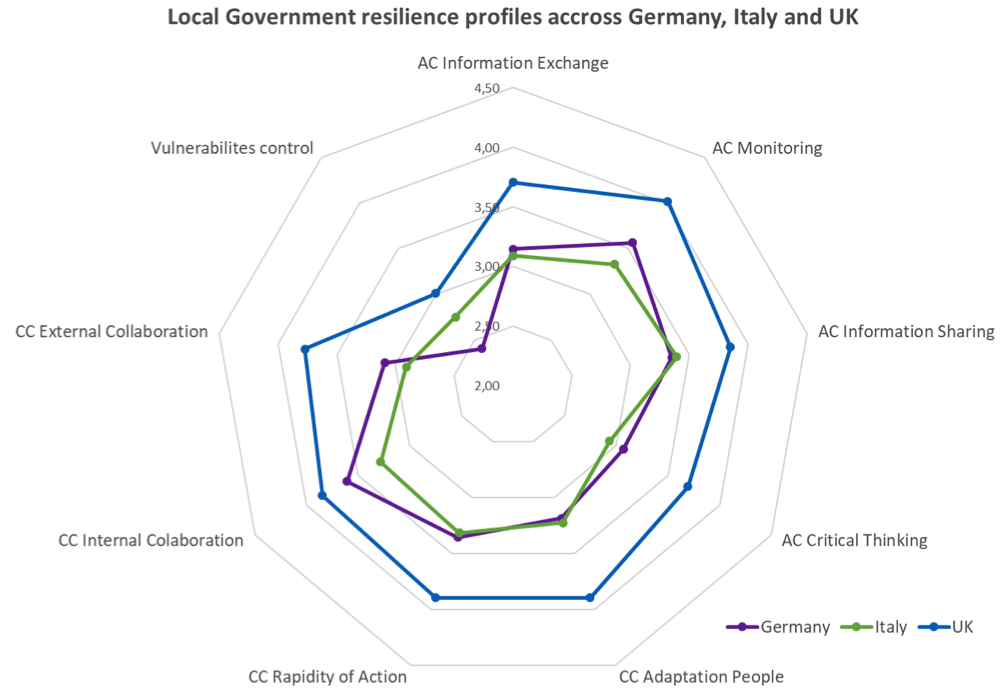Austerity appears to have brought about, among other things, an increasing attention towards the overall sustainability of local public finances, sometimes at the expense of a consideration of non-financial, service-related aspects of government performance, and of the internal organisational conditions that shape both financial and non-financial performance.
While a focus on financial indicators of local government financial conditions may be important, recent efforts (such as the CIPFA resilience index) at reflecting through such indicators their possible implications for services and policies are to be appreciated. A complementary effort may go in the direction of refocusing attention on the roles of organisational capacities in affecting financial conditions, and in shaping local governments’ ability to keep operating also in the face of difficult times.
Interestingly, a series of studies (Barbera et al., 2015, 2017, 2018, 2019) conducted with colleagues from Freiburg University, Alpen Adria University, Nottingham Business School and University of Bergamo shows that local governments may respond to external stimuli and constraints differently not only because of differences in their local context, but also because of inherent differences in the capacities they have been able to build over the years.
For example, surveying German, Italian, UK local governments we found that their responses to shocks may oscillate between two extremes, i.e., bouncing back strategies, including increasing taxes and fees, deferring investments, or reducing the costs, scope or size of the organisation, and selling assets, or bouncing-forward strategies, emphasising self-sufficiency, entrepreneurship and innovation by redefining modes of service delivery and core activities, as well as improving existing services or supplying new services either to current or new clients.
Interestingly, we found that these responses are shaped by a combination of anticipatory capacities (such as information exchange and sharing, monitoring systems, critical thinking approaches), coping capacities (such as a culture of adaptation, internal and external communication capacities, and rapidity of action) and control over relevant sources of vulnerability (in terms of perceptions related to financial autonomy, abundance of financial resources – fiscal slack – low level of indebtedness and low volatility of own revenue resources).
For example, we found that higher financial vulnerability will encourage the adoption of bouncing back strategies, while discouraging the reliance on bouncing forward ones. On the contrary, bouncing forward will be facilitated by a stronger presence of anticipatory capacities.
According to the survey, local governments in the three countries presented different levels of different capacities and vulnerabilities (see graphic below), whereby UK local governments on average appeared to have higher levels of anticipatory capacities as well as coping capacities and control over vulnerability than their Italian and German counterparts. Conversely, German local governments appeared to show stronger critical thinking, monitoring, internal collaboration and vulnerability control than Italian ones, with more alignment of continental European local government on capacities such as information exchange and sharing, culture of adaptation, and rapidity of action.
While this comparison appears to show that UK local governments may be more ready to face difficulties than their continental European counterparts, it may be important for them to ensure they nurture and maintain those capacities over the long term, especially in light of expectations of enduring difficulties in funding public services.
In this respect, they may find support in the Governmental financial resilience toolkit, developed for local governments to assess and develop their capacities in order to be better equipped to cope with disruptive events. The toolkit consists of key questions across nine sub-dimensions that practitioners can ask themselves about their organisation to help identify their own capacities and vulnerabilities, which in turn can help them to cope with shocks and difficulties affecting their financial condition.
This, together with the overall findings from our study, can be found at https://www.cimaglobal.com/Research--Insight/Local-government-financial-resilience-Germany-Italy-and-UK-compared/
Ileana Steccolini will be speaking at the Developing local resilience session at the CIPFA conference at 10.15 - 11.15 on 10 July
















